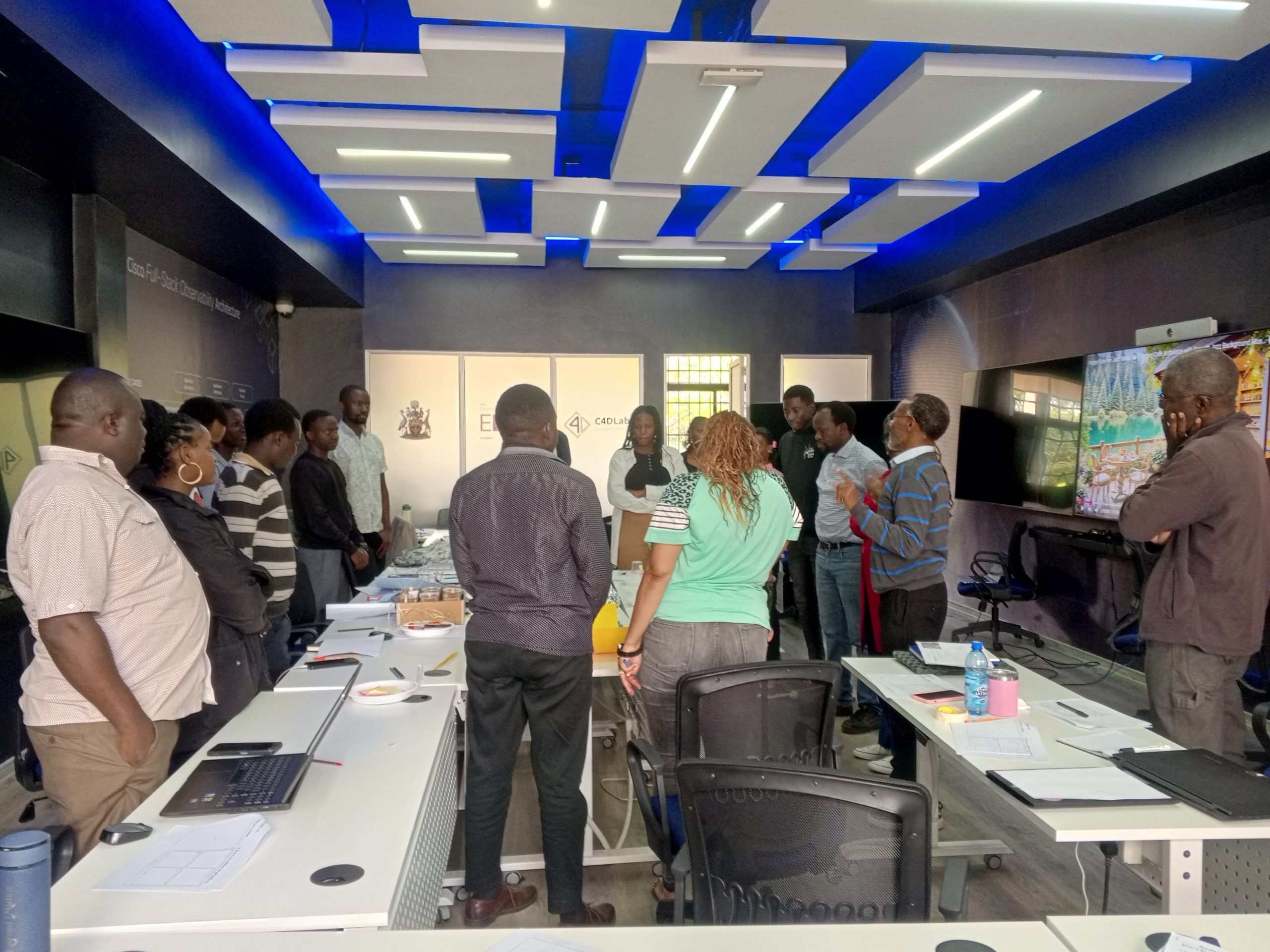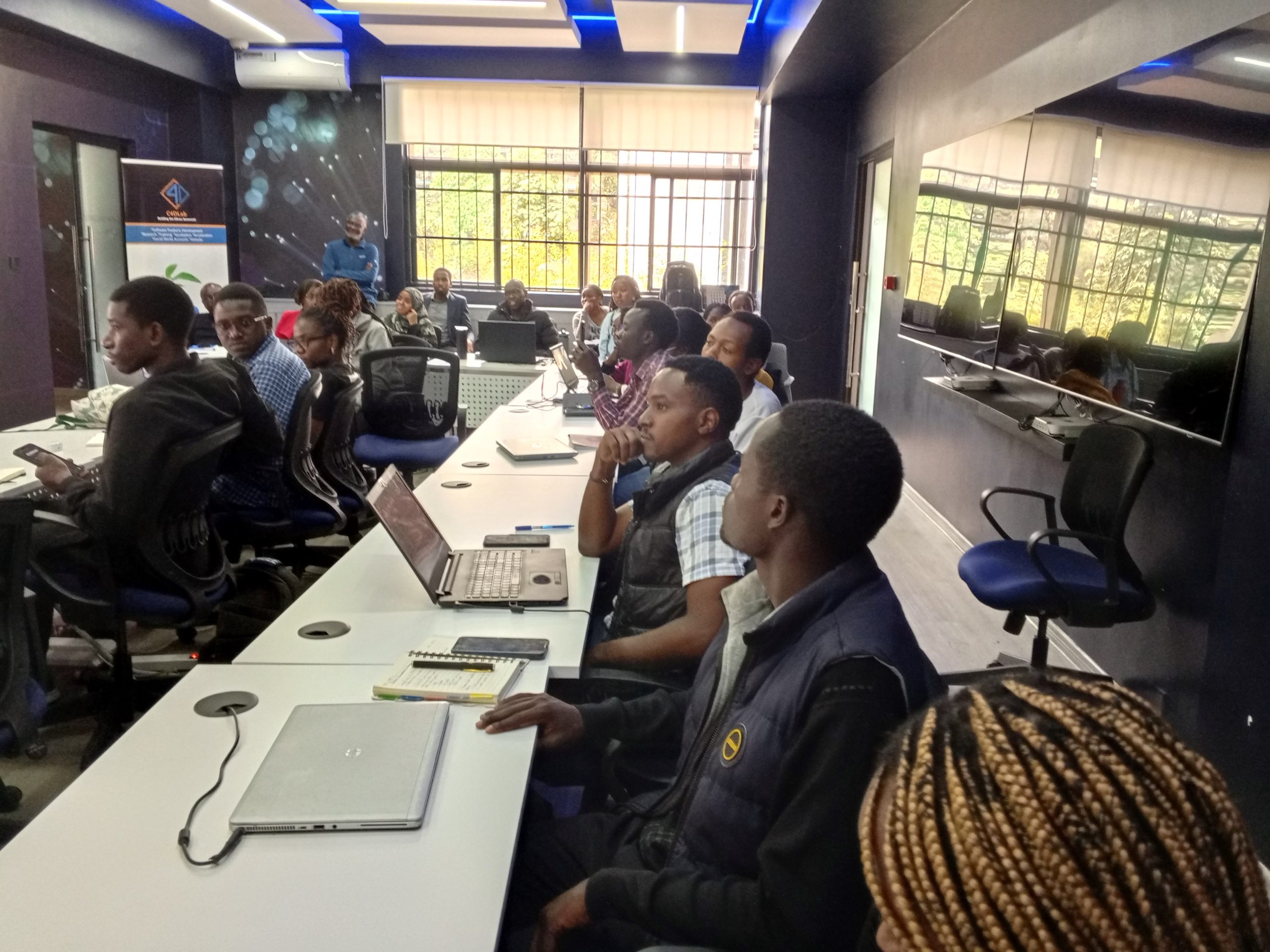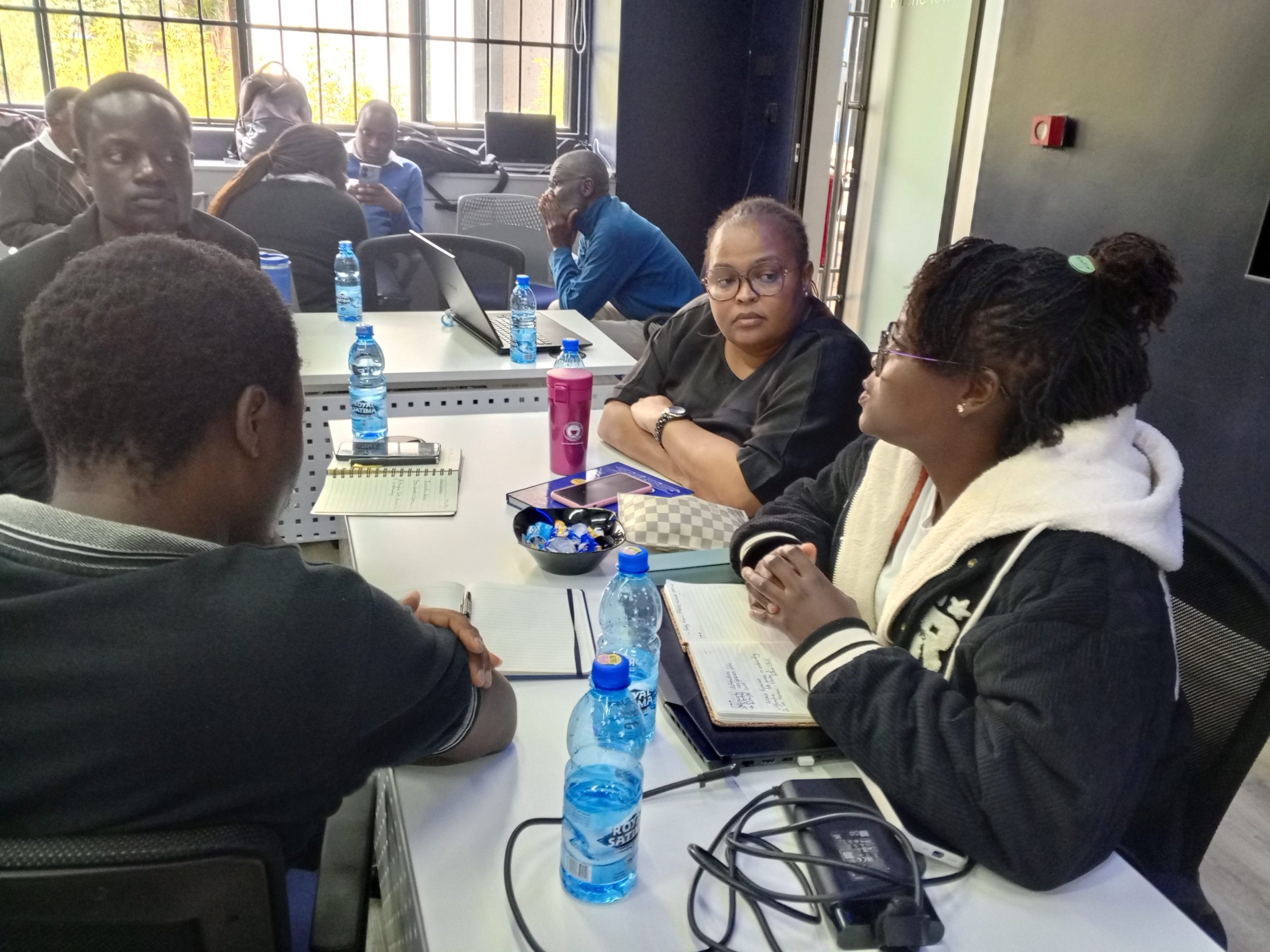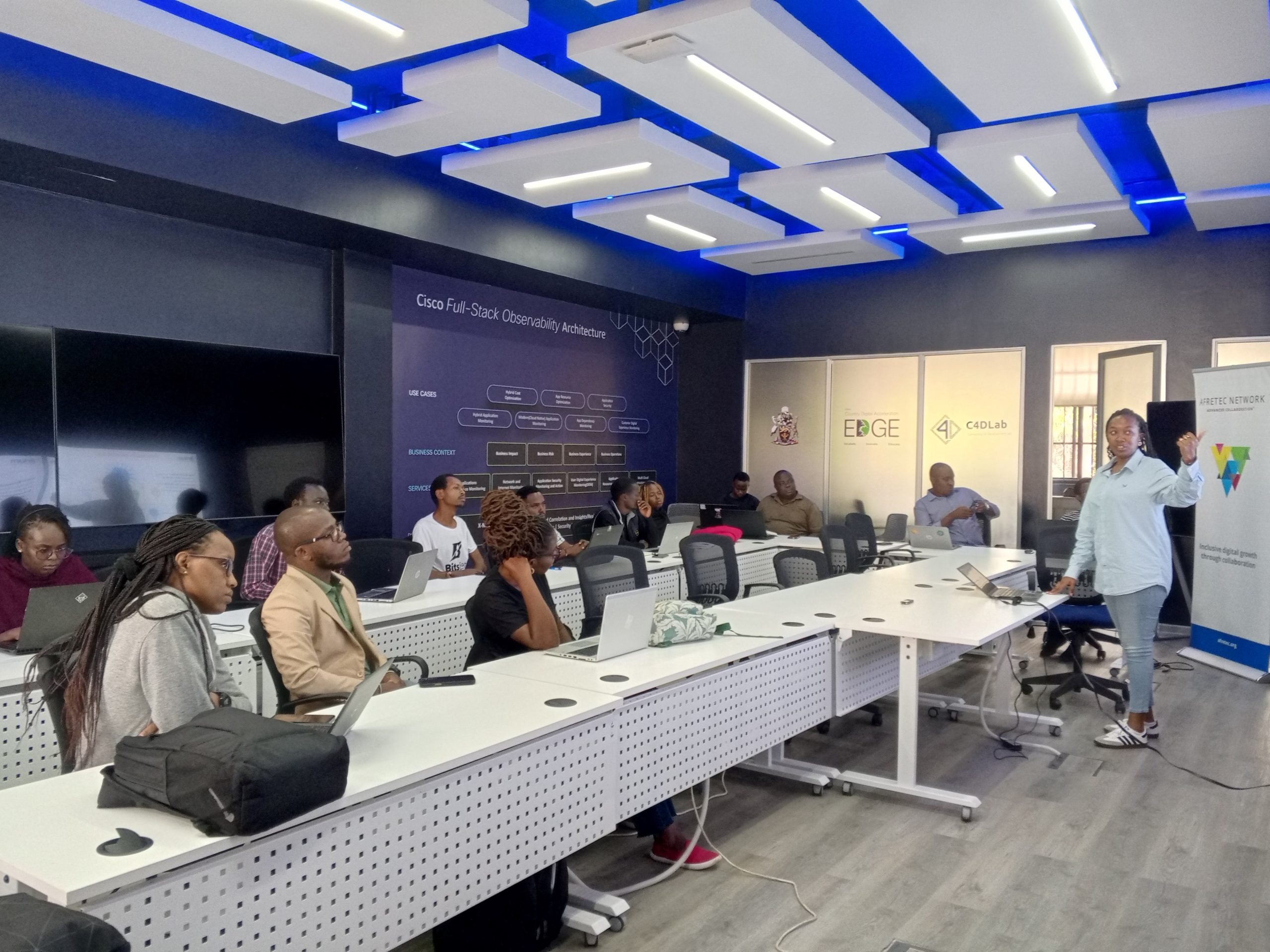Rethinking Challenges: A Deep Dive into Problem Discovery
The fourth session (virtual) of the AFRETEC Innovation Fellowship on May 30, 2025 began with a thought-provoking discussion on problem discovery, which is a critical step in shaping impactful solutions. The conversation, led by C4DLab’s Dr. Samuel Ruhiu challenged fellows to reassess their projects, emphasizing that well-defined problems lead to more effective innovations.
Dr. Ruhiu opened the floor to reflections, inviting participants to share their experiences with project planning. Some concerns were spoke candidly about the uncertainty his team faced due to poorly defined project stages, while Eng. Kimani suggested that even preliminary plans should be drafted despite incomplete information. This exchange underscored a fundamental truth: planning must evolve as new insights emerge.
Clarifying the Core Challenge
With client briefs from BRITAM and Tana and Athi River Development Authority as reference points, Dr. Ruhiu steered the discussion toward the balance between existing data and new research. While some teams hesitated to take action without complete guidance, Dr. Ruhiu urged fellows to embrace systems thinking—a methodology that prioritizes understanding the root causes rather than merely addressing symptoms.
He introduced analytical tools such as the Ishikawa diagram and root cause analysis, illustrating their relevance in problem identification. These frameworks, he explained, would help teams move beyond surface-level observations and uncover the deeper forces shaping their challenges.
Shifting gears, Ruhiu initiated a discussion on Kenya’s education system, specifically the motivations behind exam cheating and the societal pressures dictating success. He questioned how entrenched beliefs influence student performance, highlighting that the focus on passing exams often detracts from meaningful learning.
With only 30% of secondary school students qualifying for university, Dr. Ruhiu urged participants to examine institutional behaviors and systemic barriers that hinder academic success. Drawing connections between mental models and societal expectations, he encouraged fellows to rethink conventional approaches to education and innovation.
Tools for Problem Discovery
To aid their projects, Dr. Ruhiu introduced the essential mapping tools that the fellows should use for their projects. He also emphasized the importance of collaboration and research, instructing fellows to use these tools to refine their understanding and create a comprehensive perspective on their projects.
The next steps were also outlined, which included continued review of the material from the session to enable the fellows to sharpen their problem delivery. Draft plans would be discussed in the upcoming physical meeting at the C4DLab.
A number of questions were also posed including data collection and application of the information from that when the next physical meeting would be.
As the session wrapped up, Dr. Ruhiu reinforced a powerful takeaway: Solutions are only as strong as the problems they address. With this mindset, fellows now turn to the next phase of discovery, preparing to transform insights into action.




